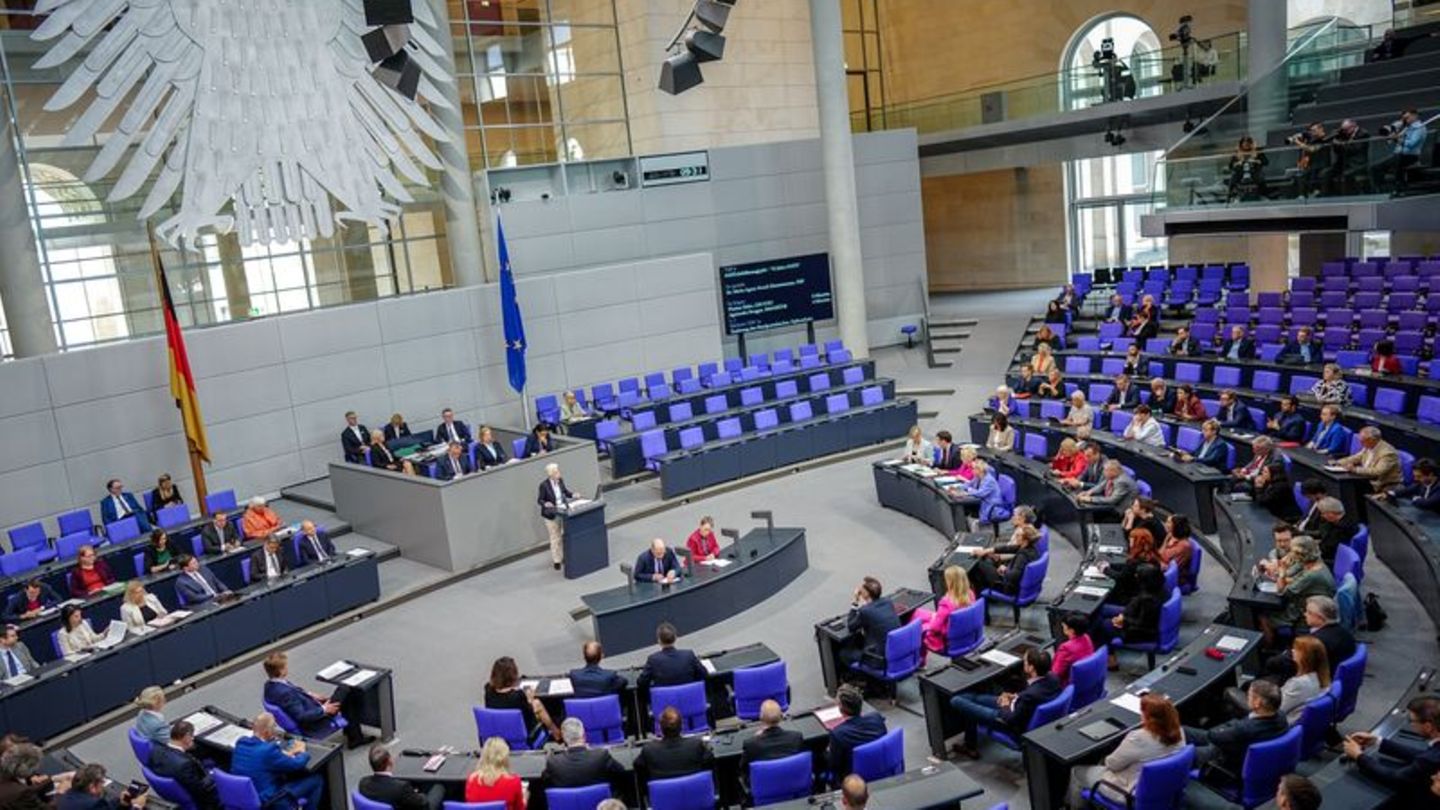Decisions on salary increases are always a hot topic. That is why an automatic procedure was introduced years ago. A proposal to suspend this procedure did not find a majority in the Bundestag.
The Left Party failed in its attempt to suspend this year’s salary increase in the Bundestag. The Union, SPD, Greens and FDP voted against a corresponding bill in parliament. The AfD abstained. The Bundestag has already suspended salary increases several times in the past for various reasons. The Left Party is currently arguing that the strained budget situation and the general social and economic situation are the reasons. The planned salary increase is the largest increase in 30 years. This is causing public rejection.
The allowances are a sensitive issue. According to the Federal Constitutional Court, Parliament must vote on increases itself. In the past, however, there has been repeated public criticism of what is considered self-serving. For this reason, Parliament decided ten years ago to link the development of MPs’ salaries to the development of wages, so that there is an annual automatic adjustment, as is the case with pensions.
11,227 euros per month plus expenses allowance
Last year, wages in Germany rose by around six percent, partly due to high wage agreements. The increase was passed on to MPs’ salaries on July 1st. They rose from 10,592 to 11,227 euros. The guideline for the allowances is the salary of federal judges. The allowances are taxed. In addition, there is a tax-free allowance of currently 5,052 euros for costs associated with exercising the mandate, for example for renting the constituency office, for office supplies and for accommodation in Berlin.
The Union says that the automated adjustment mechanism is a transparent, fair and comprehensible process that is retrospectively based on general wage developments. During the Corona pandemic, for example, this also led to a reduction in allowances. That was the case in 2021. The FDP parliamentary group sees it similarly. The mechanism is based on objective criteria and the consequences for the allowances are no longer in the hands of the MPs. That is precisely the point. The AfD is in favor of a completely different model: The allowances should therefore be based on the income that a member of parliament had before their time in the Bundestag, possibly with a surcharge.
Basic Law speaks of “adequate compensation”
The Basic Law of the Federal Republic stipulates that MPs should be entitled to “appropriate compensation that ensures their independence.” “The aim is for MPs to be independent of donations and other benefits and not to have to take on any secondary employment so that they can freely exercise their mandate,” writes SPD MP Nils Schmid on his website. “It is also intended to prevent only those who can afford it financially from holding political office.”
Source: Stern
I have been working in the news industry for over 6 years, first as a reporter and now as an editor. I have covered politics extensively, and my work has appeared in major newspapers and online news outlets around the world. In addition to my writing, I also contribute regularly to 24 Hours World.




